
You’ve heard the old saying: “you’ve got to spend money to make money.” Starting a lawn care business is no different. You have to purchase equipment, obtain a license and insurance, acquire customers — it can feel almost overwhelming.
This guide will walk you through the steps of starting your own lawn care business, and help you identify the least expensive options along the way.
We’ll look at three main areas of expense you’ll run into:
The cost of starting a lawn care business from scratch can range from $15,000 to over $50,000, depending largely on the quality of equipment you purchase. If you already have access to a pickup truck, garage space, or lawn mower, you can cut this cost dramatically.
If you don’t have access to that kind of cash upfront, dealer financing and small business loans are available to help your lawn care operation pay for itself. Even though starting a business seems daunting, a platform like LawnStarter can help you turn a profit quickly by connecting you to new customers, optimizing routes, and handling all your accounting and billing.
Equipment
LawnStarter requires its pros to own three main tools: a lawn mower, a string trimmer, and a leaf blower. You’ll also need a truck or SUV capable of hauling those tools. For the most basic one- or two-person operation, this may be all you need to get started.
How to save: buy used or in a bundle
Our research has found that used lawn care equipment, or commercial equipment bundles from independent equipment dealers, can save you thousands of dollars as you start your business. Full packages including trailers, mowers, blowers, and trimmers are the most cost-effective way to start a commercial lawn care business.
3 essential lawn care tools
Let’s start simple. You’re going to need three essential tools to operate a lawn care company: a lawn mower, a string trimmer, and a leaf blower. All three of these tools come in a variety of brands, with different power sources, abilities, and price points. It’s important to choose the right options for the types of lawns you’ll encounter most.
Lawn mowers
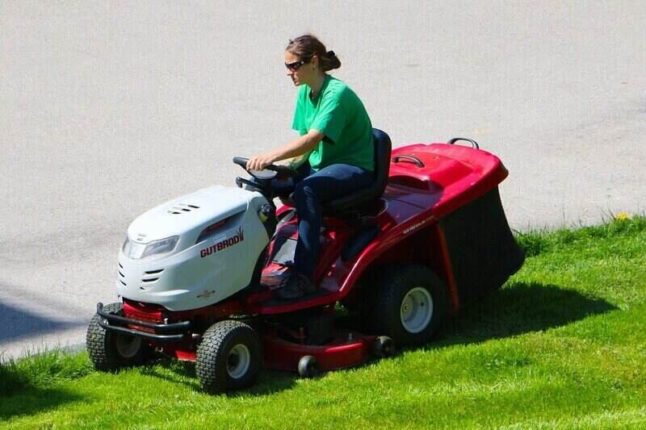
Push or ride-on? Electric or gas? For a brand-new lawn care professional, the sheer number of choices can make finding the right mower a chore. Every option has its pros and cons.
For example, electric mowers cut down fuel costs, but can’t run all day without you changing the battery a few times. Riding mowers can handle larger yards, but require a trailer and a high towing capacity to transport them.
Time is money, as the saying goes, and a faster mower can significantly boost the number of yards you’ll get done in a typical day. While a commercial stand-on or zero-turn mower may come with a steeper price tag, it will significantly affect your income.
When buying new equipment, a commercial-grade walk-behind mower will cost between $1,000 and $5,000, and a ride-on mower will cost $6,000-$10,000 or more.
However, a quick Google search for equipment bundles will turn up much less expensive results. A full commercial mower bundle, complete with trimmer, blower, and trailer, can cost as little as $6,000. Many equipment dealers will offer financing options, so you don’t need to front the entire cost.
Check out our Lawn Mower Pricing Guide for more information on purchasing a mower.
String trimmers
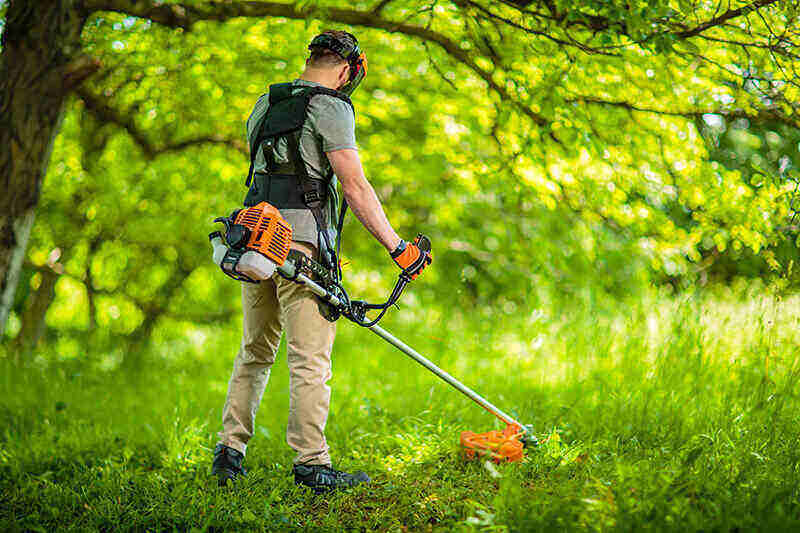
Clean-cut edges make the difference between an amateur mow and a professional lawn care service. A good string trimmer, also known as an edger, weed eater, or weed wacker, is a tool that will help you deliver lawn care that’s a cut above many of your competitors.
The cost of a commercial-grade weed wacker varies but generally runs between $100-$400.
Leaf blowers
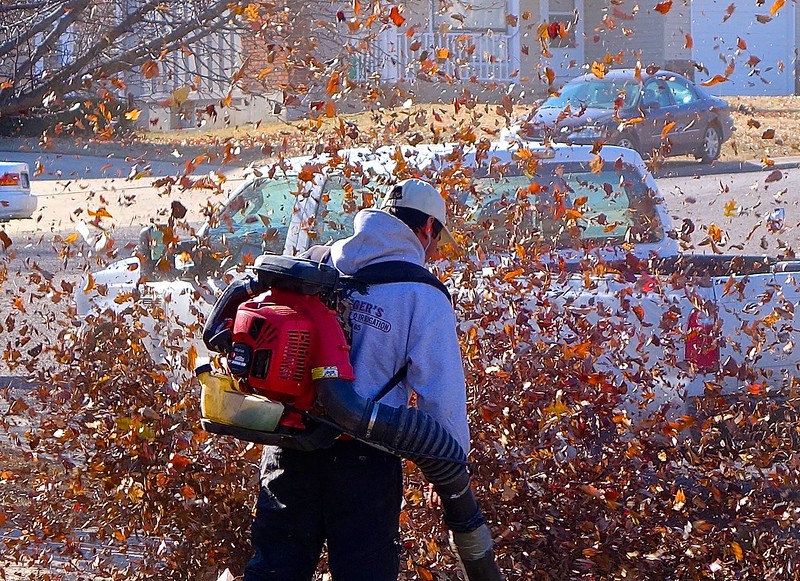
A high-quality lawn care job isn’t over until you’ve cleaned up. A commercial leaf blower will clear grass clippings, leaves, and other debris from the yard and hardscapes. A backpack-style blower, the most popular type for pros, costs between $250 and $500.
Transportation and storage
Lawn care is a field service industry. You need a reliable way to get you and your equipment to your customer’s property, and a place to store and maintain your equipment at the end of the day. Apart from a mower, your vehicle will likely be the biggest purchase you’ll make.
Vehicles
When you’re just starting in the lawn care industry, you’ll probably be looking at used vehicles to keep your costs down. Choosing a vehicle is a big decision. Factors such as fuel economy, mileage, and towing capacity should all be considered.
A new pickup truck will likely cost between $30,000 and $50,000, while used trucks can be found for as little as $5,000.
Trailers
If you’re planning to purchase a larger mower, you’ll need a trailer to haul it. There are a variety of factors to consider when choosing a trailer, the most obvious being its design.
Flatbed trailers are less expensive than covered trailers, but leave your equipment exposed to the elements.
Covered trailers protect your equipment from theft and damage, and can save you money on storage.
On average, open trailers cost around $1,000 and enclosed trailers can run from $3,000 to $10,000.
Storage
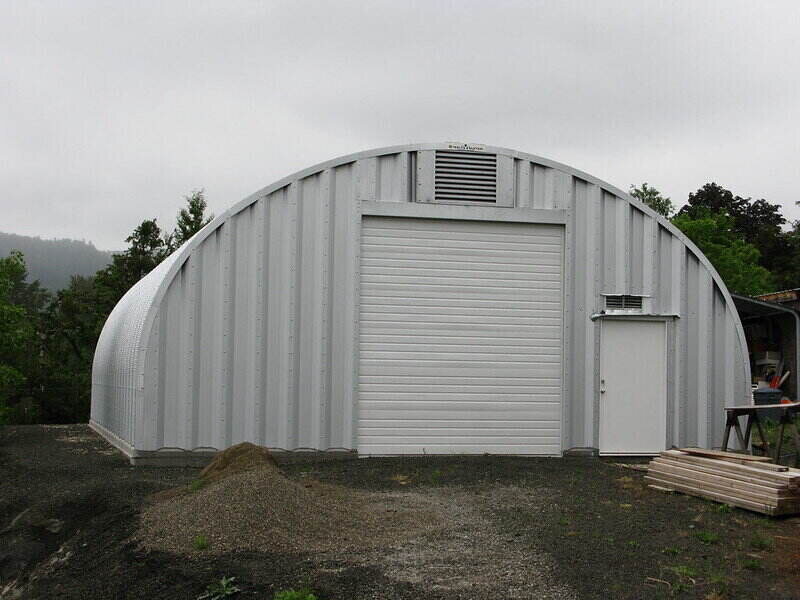
If you don’t have access to a garage, finding a place to store and maintain your equipment can be a challenge. For this reason, an enclosed trailer can serve as a garage and may be worth the extra investment.
Renting a storage unit is another option. Mobile storage units (like PODS) average around $150/month. Units at self-storage businesses are comparably priced, though larger units can cost up to $300/month.
Additional equipment
As your business grows, you may want to offer other outdoor services to your customers. Services like pressure washing or aeration can set you apart from your competitors. Many lawn care companies also offer winter services, such as snow removal, to keep business flowing in the mowing off-season.
Here’s a list of additional lawn care and outdoor services equipment you may consider purchasing, and the average cost:
| Additional Equipment | Cost |
| Rakes, spades, loppers, etc. | $10-$50 each |
| Fertilizer spreader | $100 |
| Hedge trimmer | $150 |
| Aerator | $250 |
| Chainsaw | $250 |
| Pressure washer | $800 |
Business License and Fees
Most states will require you to obtain a business license before operating a lawn care company. Generally, a business license costs between $50 and $100 to incorporate as a limited liability company or create a DBA (doing business as, also known as a fictitious name). If you plan to be a one-person lawn care service, a DBA is the easiest way to get started.
If you plan to hire employees, you’ll have to pay for workers’ compensation insurance, which is calculated as a percentage of total payroll.
Some states require additional certifications to begin operating a landscaping service. These may include courses in the proper use of safety equipment, first aid training, and environmentally responsible handling of pesticides and herbicides.
Check with your local state Department of Agriculture to learn what the local requirements are for starting a lawn care or landscaping business.
Operation Costs
Your business expenses don’t end after you’ve paid your startup costs. When you’re still building your customer base, the cost of operations may outweigh your income. Joining an organization like LawnStarter will help you build your customer base quickly so you can see profits sooner.
Customer acquisition

To acquire customers, you’ll need to invest in building your client base. Relying solely on word-of-mouth referrals to gain customers can make for slow growth.
For small lawn care operations, printing flyers and posting them in your neighborhood is an inexpensive way to advertise. Creating a presence on social media can also help spread awareness of your brand.
If you have the cash to hire a graphic designer, a company logo featuring your business name can attract potential customers. You also can use your lawn care company’s logo on truck wraps, business cards, T-shirts, and more.
Pro Tip: The easiest way to reach customers is by joining LawnStarter. We put new business owners in contact with a wide customer base where you live and work at no cost.
Business insurance
Lawn care companies use expensive equipment and vehicles, and pros are always at risk of injury. Whether you have one employee or a fleet, you need some form of insurance to stay in business when an emergency occurs.
Small lawn care businesses pay an average of $50/month for insurance.
Software
If you don’t want to track all your business expenses on paper, there are a lot of software options aimed at making it easier to manage your lawn care business. Most business software suites for lawn care companies cost between $30-$50 per month, but there are free options.
Fuel and maintenance
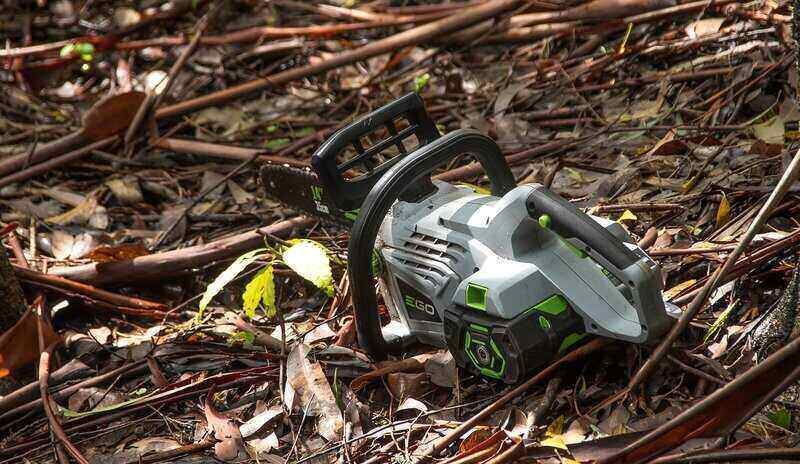
You can save fuel costs to some extent by using battery-powered tools, but every successful lawn care business is going to rack up fuel expenses. A single-truck lawn care or landscaping company can expect to spend around $5,000/year on fuel, depending on gas prices.
Learning how to maintain small engines will save you money in the long run. Keeping your lawn care equipment in top shape isn’t difficult, and it will save you repair and replacement costs.
Even after a long, tiring day of mowing, it’s important to spend time making sure your machines are clean and properly stored.
To Get Started, Buy Your Lawn Equipment
It really does take money to make money, and you need to mow a lot of green grass to make a lot of green.
The biggest obstacle to overcome when starting a lawn care company is the cost of equipment. Buying used or bundled equipment and exploring financing options can be a game-changer for a prospective lawn care entrepreneur.
Here’s why: As long as you can build a customer base, your equipment will pay for itself.
LawnStarter is committed to helping pros build their customer base. We’ve made it possible for thousands of pros to turn profits. If you’re interested in starting a lawn care business, LawnStarter can help your lawn care company get off the ground successfully faster than if you were to go it alone.
If you have questions about LawnStarter’s platform and ways you can better use the services, call or text LawnStarter Pro Support at 855-800-4872 Monday through Saturday.
Main Photo Credit: TheDigitalWay / Pixabay
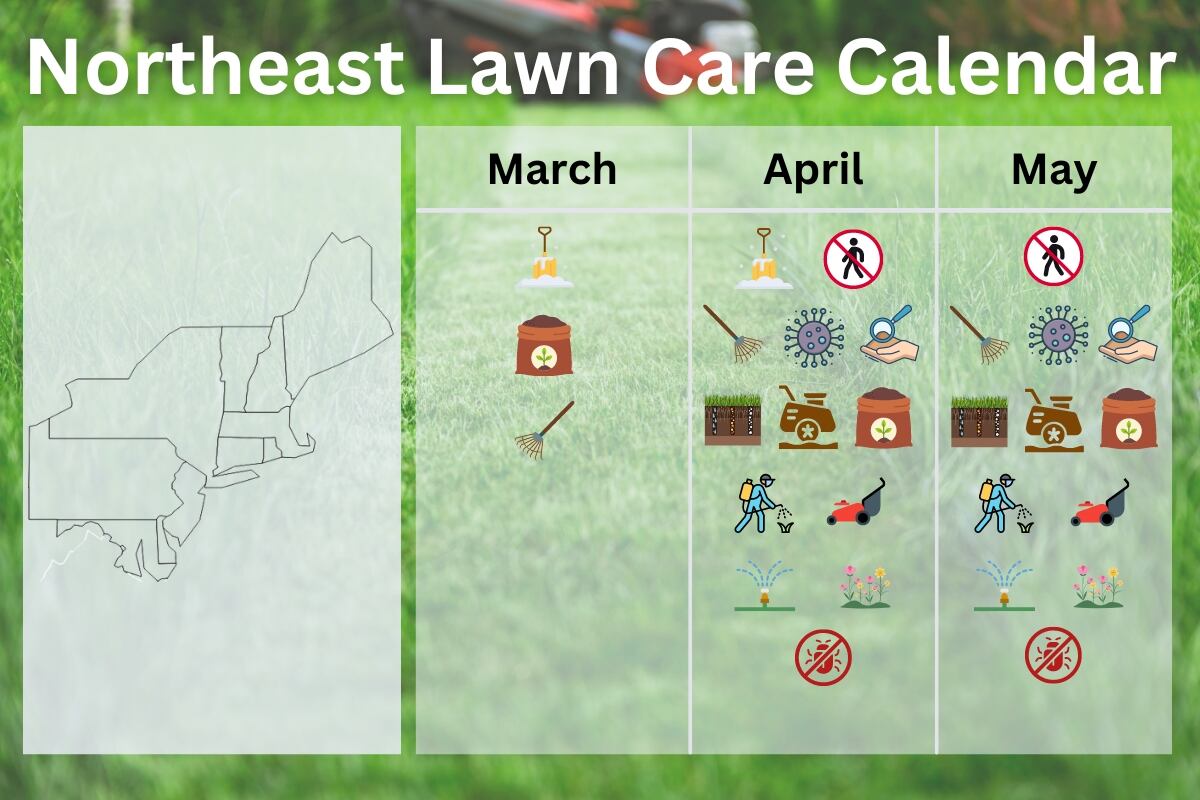
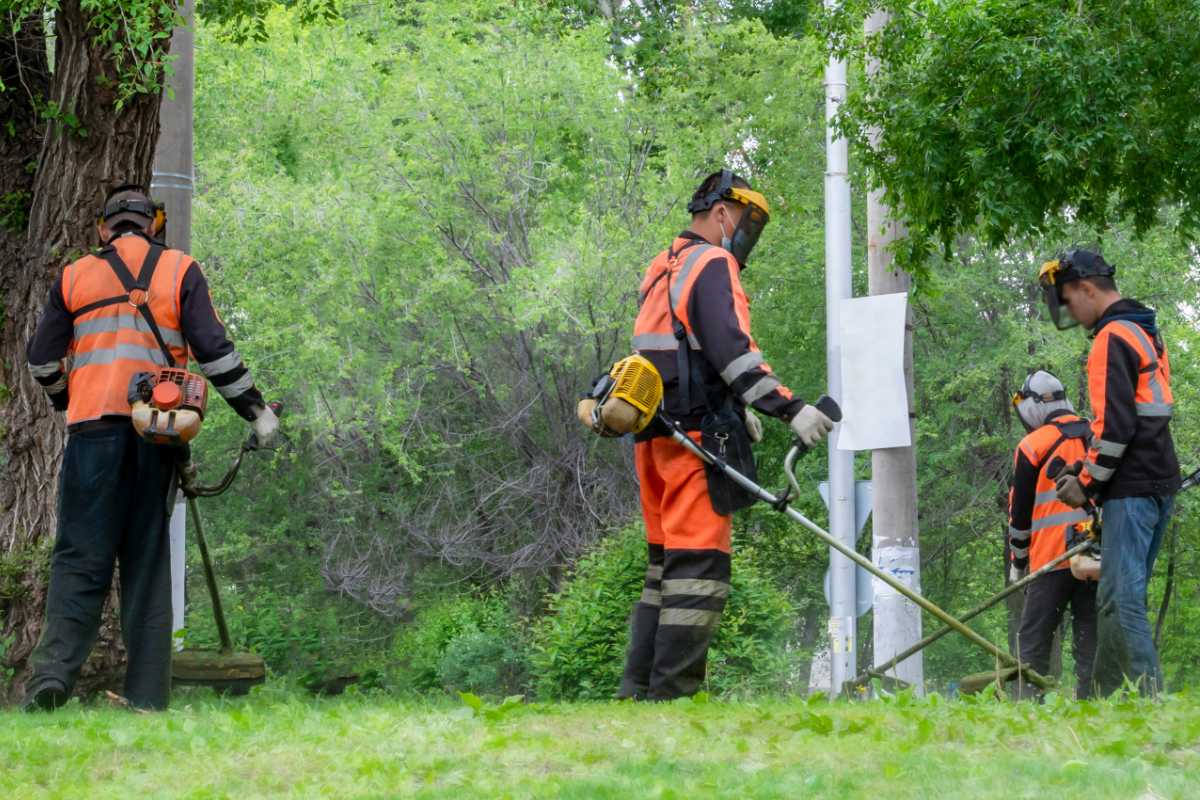
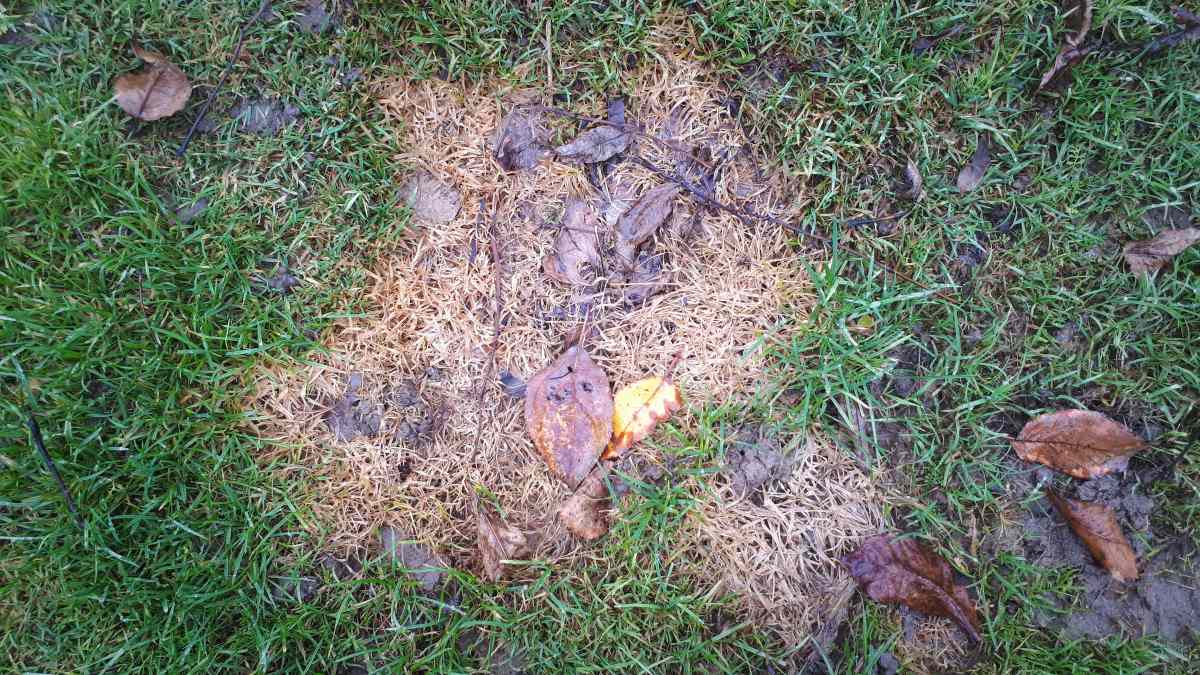
![8 Best Battery-Powered Lawn Mowers of 2025 [Reviews] man putting battery in lawn mower with text overlay on it](https://www.lawnstarter.com/blog/wp-content/uploads/2021/06/Best-Battery-Powered-Lawn-Mowers.jpg)
